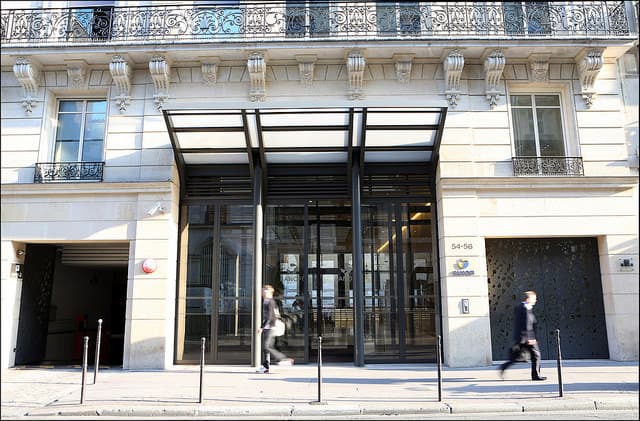
Sanofi has put a long run of decline caused by patent losses in its rear view mirror, with rare disease unit Genzyme and atopic dermatitis drug Dupixent providing the acceleration in its Q4 results.
Genzyme had a solid quarter with sales up almost 11% to €794m, while Dupixent (dupilumab) added another €280m, more than double the same period of 2017, fuelled in part by a new approval in moderate-to-severe asthma that analysts have suggested could make it a $7.5bn product at peak.
All told, Sanofi posted a 3.5% in fourth-quarter revenues to just under €9bn, a little ahead of analyst expectations, while net income also outperformed thanks in part to earlier-than-expected savings from a cost-reduction programme. It also predicted a 3% to 5% rise in net income for 2019, which helped nudge shares up slightly this morning.
CEO Olivier Brandicourt said the performance “continued the momentum of the previous quarter…as the headwinds of our US LoEs [loss of exclusivities] began to moderate,” referring to the continuing declines in its diabetes franchise.
Diabetes and cardiovascular drugs slipped another 7% to €1.55bn in the quarter, with Lantus (insulin glargine) falling 20% and newer longer-acting variant Toujeo also showing weakness with a 2% drop overall and a near-one-third decline in the US.
There was positive news for Sanofi’s new play in rare blood disorders. While growth for haemophilia treatments Eloctate and Alprolix – acquired as part of Sanofi’s $11.9bn acquisition of Bioverativ last year – remained fairly sluggish, the quarter was marked first sales contribution from Cablivi (caplacizumab) for acquired thrombotic thrombocytopenic purpura (aTTP), which made its debut in Germany in October.
Eloctate and Alprolix grew 4% to €196m and 5% to €95m, respectively, while Cablivi added €3m in the quarter – although that figure is expected to rise sharply now that Sanofi has FDA approval for the drug in the US, with analysts predicting sales could reach €500m or more.
Sanofi is also hoping for a sales kick this year and beyond from Libtayo (cemiplimab), its late entrant in the checkpoint inhibitor category which was approved for cutaneous squamous cell carcinoma (CSCC) in the US last September.
CSCC is a rare cancer with no other approved therapies, and that niche positioning helped sales reach $15m in the fourth-quarter, ahead of estimates and booked by Regeneron, Sanofi’s partner for the drug.
Other new products in Sanofi’s portfolio are still not looking too buoyant, particularly Kevzara (sarilumab) for rheumatoid arthritis and high cholesterol therapy Praluent (alirocumab), both of which have struggled to gain momentum since launch.
There were glimmers of greater momentum in the last three months of the year, however, with Praluent up 50% to $82m – on the back of hefty price cutting in the US to stimulate uptake – and Kevzara adding another €31m.
Sales of Kevzara in the US have obstinately stayed a little above the €20m mark each quarter through 2018, and the last three months of the year was no exception, with a sizeable chunk of the increase coming from a roll-out in its first European markets.




